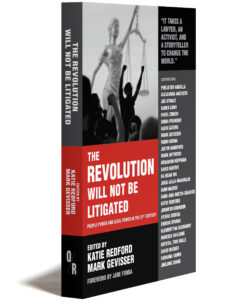Erin Daly, Paul Stanley Holdorf, Kelly Harnett, Jane Doe, and Domonique Grimes
Volume 26.2 (download PDF)
Abstract
Staff sexual abuse is rampant throughout the American prison system. This is true despite a federal law—the aspirationally titled Prison Rape Elimination Act (“PREA”)—that has been in place for 20 years and despite the rare conviction of prison officials who are found guilty of rape or sexual abuse of people who are incarcerated. Sexual contact between prison staff and incarcerated people is by definition illegal because the power imbalance between people in custody and those who are under their control makes consent impossible as a matter of law. Staff-on-prisoner sexual abuse takes many forms, including sexual humiliation, sexually degrading language and threats, and various forms of rape. The harm of sexual violence in prison is commonly compounded by violations of privacy and by retaliation against those who speak out. To better understand the pervasiveness and profound harms of staff-on-prisoner sexual abuse, this article—co-written by two survivors who were also jailhouse lawyers—examines the harms and demonstrates the inadequacy of the current legal regime to protect women who are incarcerated. It then proposes that understanding prison sexual abuse as a violation of women’s inherent human dignity and applying the law of dignity rights to cases of staff-on-prisoner sexual abuse would better protect women who are vulnerable to abuse inside and help to end the culture of sexual abuse that pervades American prisons and jails.
Erin-Daly-et-al.-Womens-Dignity-Womens-Prisons-26-CUNY-L.-Rev.-260-2023

 Photo credit: Adam Schultz Creative Commons/
Photo credit: Adam Schultz Creative Commons/